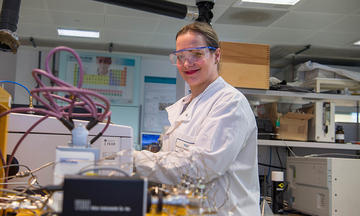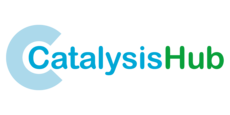Everyday Actions: Supporting Diversity in Catalysis Research

As scientists, we often measure impact through discoveries, data, and citations. But the environments we shape — in our labs, papers, conferences, and collaborations — influence the future of our field just as profoundly. I have been privileged to work in both scientific research and research facilitation and it has always been clear to me that science and research are enriched by a diversity of opinions, ways of thinking and backgrounds.
Diversity in catalysis, as in all scientific disciplines, isn’t a box to tick or a quota to meet. Diversity is multifaceted. Gender, researchers of colour, disabled scientists, LGBTQ+ chemists, first-generation scholars, and those from outside traditional academic networks all bring perspectives that strengthen catalysis. It’s a lens through which we can do better science: more rigorous, more inclusive, and ultimately more innovative.
Supporting diversity doesn’t always require sweeping reforms. Small, intentional actions in our everyday academic lives can shift the culture. I believe supporting this diversity means asking not just who is in the room, but who’s missing and why.
Here are a few simple, meaningful ways to make a difference:
1. Think about who you cite
Citation shapes visibility and career progression. Next time you write a paper or proposal, pause to consider:
- Is there a pattern in the authors you cite — in terms of geography, gender, or career stage?
- Could you be overlooking equally rigorous research from less well-known or underrepresented groups?
It’s not about forced balance. It’s about awareness — and recognising that citation practices reflect and reinforce who we consider as "core" to the field.
2. Challenge bias in data and algorithms
As AI tools and literature-mining platforms become more common in chemistry, they also inherit the biases of the datasets they’re trained on. Be cautious of what’s missing.
When using automated tools for literature review or data analysis:
- Ask what voices or journals might be underrepresented.
- Consider searching beyond the top-tier or most cited papers — sometimes the most innovative ideas are outside the mainstream.
Bias isn't just human — it can be algorithmic. But it’s still our responsibility.
3. Broaden your collaborations
Science thrives on connection but our networks are often shaped by where we studied, who we trained with, or who we meet at conferences.
Consider:
- Reaching out to potential collaborators from different institutions, countries, or backgrounds.
- Inviting early-career researchers from underrepresented groups to co-author, co-supervise, or contribute to projects.
4. Make events more inclusive by design
If you're organising a seminar series, symposium, or even a small meeting, reflect on:
- Who’s on stage? Who’s missing?
- Are all participants equally able to attend? Consider time zones, caregiving responsibilities, and financial support?
A simple speaker audit or open call for abstracts can bring fresh voices into the room.
5. Mentor with inclusion in mind
In the lab, small acts of inclusion matter:
- Be proactive in encouraging diverse students to present at conferences or co-author papers.
- Create spaces where people feel comfortable asking questions, sharing ideas, and making mistakes.
Mentorship isn’t just about technical guidance — it’s about being included.
6. Acknowledge invisible labour
- Recognise and credit the often-unseen contributions of lab managers, teaching assistants, and admin staff.
- In group meetings or acknowledgements, name contributions explicitly.
Science is at its best when everyone has the opportunity to contribute fully. In catalysis — a field defined by complex interactions and dynamic systems — diversity isn’t just a social good. It’s a scientific strength.
It starts small. But so does catalysis.
Author:
Dr. Josie Goodall, Project Manager, UK Catalysis Hub
Suggested Resources
🔬 For Chemistry & Catalysis
- #BlackInChem
https://twitter.com/BlackInChem
Promotes Black chemists and their work. Great place to discover researchers to cite, invite, or collaborate with. - WISC (Women in Supramolecular Chemistry)
https://www.womeninsuprachem.com
Focused on support, mentoring, and visibility for women in the field — applicable to catalysis and chemistry broadly. - LGBTQ+ STEM
https://lgbtstem.wordpress.com
Resources and community for LGBTQ+ scientists. Check out profiles of researchers across fields. - Royal Society of Chemistry Inclusion & Diversity Reports
https://www.rsc.org/new-perspectives/talent/inclusion-and-diversity/
Includes data and actions on citation bias, grant disparities, and inclusion in the chemical sciences. - In2scienceUK
https://in2scienceuk.org
Provides STEM placements and mentoring for students from low-income backgrounds. - STEM Learning – Inspiring Scientists Collection
https://www.stem.org.uk/resources/library/collection/4372/inspiring-scientists
Features profiles of British scientists from minority ethnic backgrounds, with classroom-ready materials. - Catalyst Science Discovery Centre
https://www.catalyst.org.uk
Runs inclusion-focused science engagement programmes, especially for young people. - APPG on Diversity and Inclusion in STEM (UK Parliament)
Read the RSC’s submission
Offers insight into systemic barriers and policy recommendations.
On Inclusive Citations & Algorithmic Bias
- “Who’s in the Room? Citation Diversity in Chemistry”
A perspective by Briony Yorke et al., Nature Chemistry (2022)
Explores citation bias and how to audit reference lists.
DOI: 10.1038/s41557-022-00991-z - “Data Feminism” by Catherine D’Ignazio and Lauren F. Klein
A foundational book (free online via MIT Press) on bias in data science.
https://data-feminism.mitpress.mit.edu


